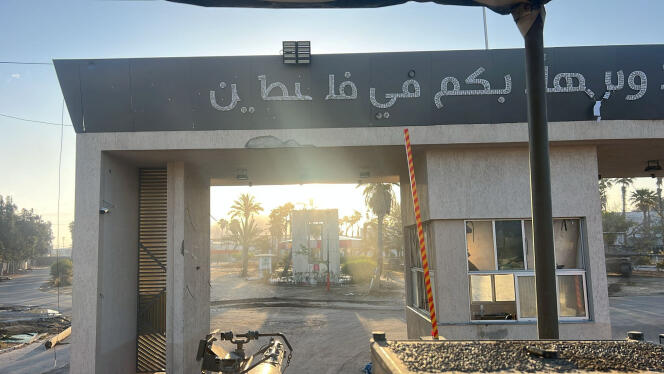


Nineteen years after Israel's withdrawal from the Gaza Strip, the image of Israeli tanks advancing down the Philadelphi Corridor along the border with Egypt, and the Star of David flag flying over the Rafah terminal, has sent shockwaves through the Arab world. After months of threatening to go in and defeat the last Hamas battalions in the city, which is home to over 1.4 million Gazans, Israel announced on the morning of Tuesday, May 7, that it had taken "operational control" of the Palestinian side of the crossing point, the main entry point for humanitarian aid into the enclave.
In Cairo and Washington, this development has prompted very measured reactions. On Tuesday, White House spokesman John Kirby stressed that Israel had informed its major ally that "this is an operation of limited scope, scale and duration."
However, on Wednesday, US President Joe Biden reiterated an American red line with unprecedented firmness, warning Israel against any attempt to extend its operation into the overcrowded city of Rafah, at the risk of sparking chaos there and provoking a forced population displacement toward the Sinai peninsula. “We're not going to supply the weapons and artillery shells used” for such an undertaking, he warned, after Washington confirmed last week that it had suspended a delivery of bombs to Israel. For Biden's administration, the only way forward remains reaching an agreement to free at least some of the hostages held by Hamas. The Israeli government remains committed to the negotiations, which resumed in Cairo on Wednesday, while also threatening to push its troops elsewhere in Rafah to put pressure on Hamas during the talks.
Cairo, for its part, has condemned the threat this Israeli fait accompli has posed to the already fragile negotiations, and warned of the risk of a "humanitarian nightmare" should operations be extended. This response has been seen as timid by many Egyptians, who have taken to social media to condemn an attack on the country's sovereignty and a flagrant violation of the 1979 Israel-Egypt peace treaty following the Camp David Accords.
"No mention was made of the Israeli tanks that entered the Saladin corridor [the Philadelphi corridor]. No diplomatic reprisals have been announced," said Hossam el-Hamalawy, an Egyptian researcher living in exile in Germany. "The Egyptian state and army have been reduced to the role of spectators, if not accomplices, to the ongoing massacres in Gaza."
The deployment of Israeli tanks in this demilitarized zone, without prior authorization from Cairo, would constitute a violation of the peace agreement that was signed under American auspices. Under the terms of the Philadelphi Accord, the additional protocol to the peace treaty signed in 2005, control of the corridor was transferred to Egypt after the Israeli withdrawal from the Gaza Strip. Hamas took control of the Palestinian side after seizing power in the Gaza Strip in 2007.
You have 62.44% of this article left to read. The rest is for subscribers only.
